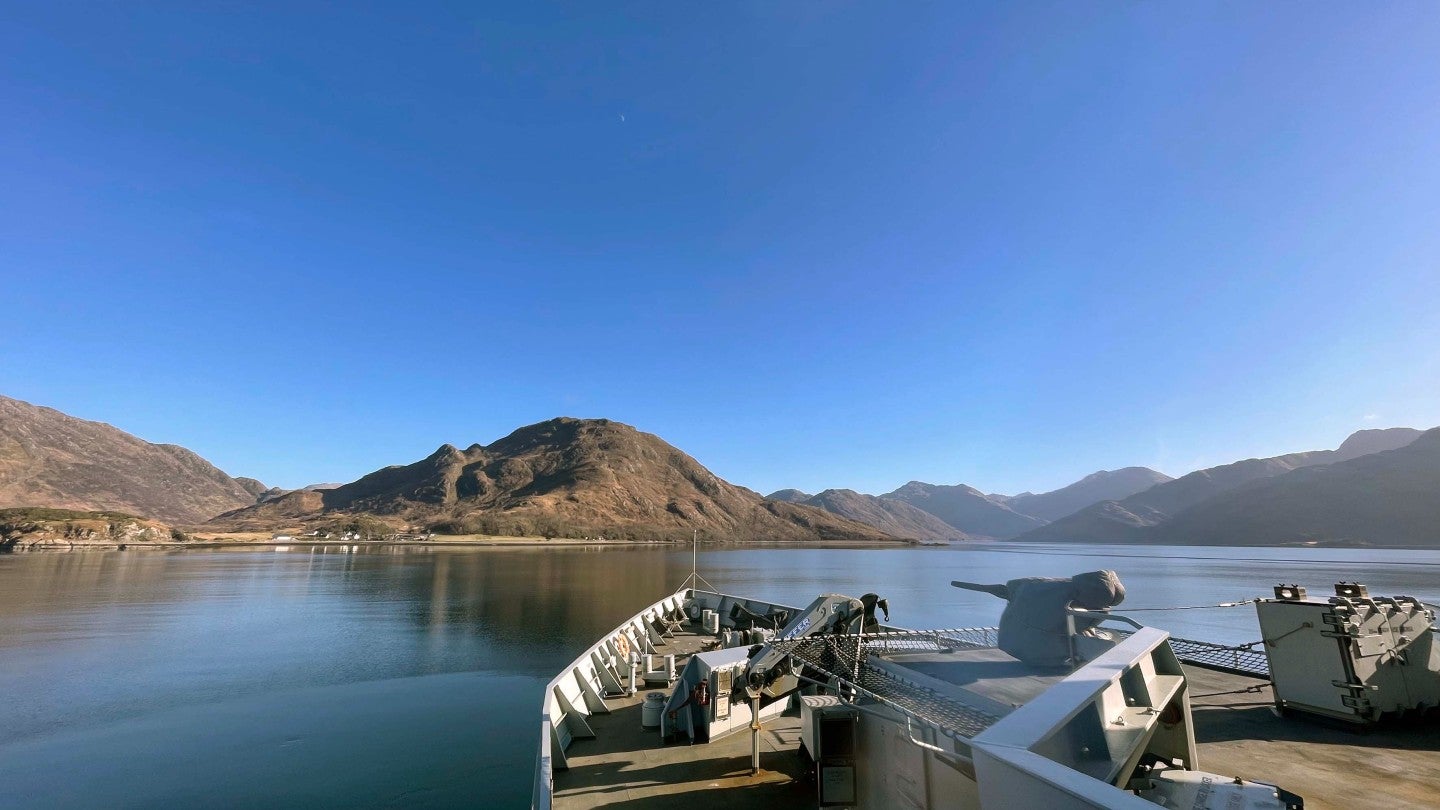
The UK Royal Navy’s (RN) future navigators have completed a two-week long training event aboard the River-class offshore patrol vessel HMS Mersey.
The training activity was conducted in the Highlands and Islands region of Scotland.

Discover B2B Marketing That Performs
Combine business intelligence and editorial excellence to reach engaged professionals across 36 leading media platforms.
It was organised as part of the Students on the Specialist Navigator (Spec N) course, which included eight weeks of classroom/on-simulator training and two weeks of at-sea training to provide real-world experience.
As part of this navigational training, around 14 trainees/instructors were required to bring a containerised navigation classroom aboard the patrol vessel’s flight deck, after which the ship headed to the Irish Sea and western Scotland for the final hands-on training.
Throughout the exercise, the River-class vessel conducted manoeuvres at the sea inlets with speeds of up to 20k, allowing students to undertake a series of specialised navigation activities, such as fixing the ship’s position by depth sounding techniques and horizontal sextant angles.
Furthermore, the event assessed and improved the readiness of the RN’s experienced navigators to undertake missions across the globe in all weather conditions, during day as well as at night.

US Tariffs are shifting - will you react or anticipate?
Don’t let policy changes catch you off guard. Stay proactive with real-time data and expert analysis.
By GlobalDataThe effort also ensured that the existing RN navigators have the required knowledge and expertise to take up the role of instructors for training and guiding the future navigators.
RN future officer sub lieutenant Owen Moore said: “Few on board Mersey knew exactly what to expect – except that the ship would ultimately be coming alongside somewhere along the West Coast of Scotland and that for much of the time the crew would be closed up at Special Sea Dutymen due to the risks involved with navigating so close to shore, placing a greater strain on the ship’s company than normal running.”





